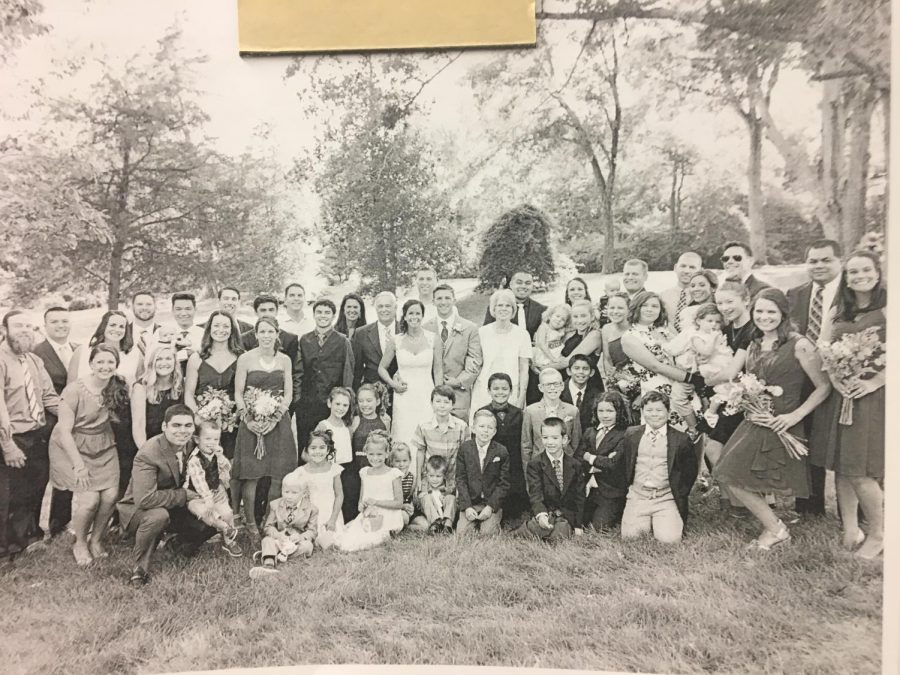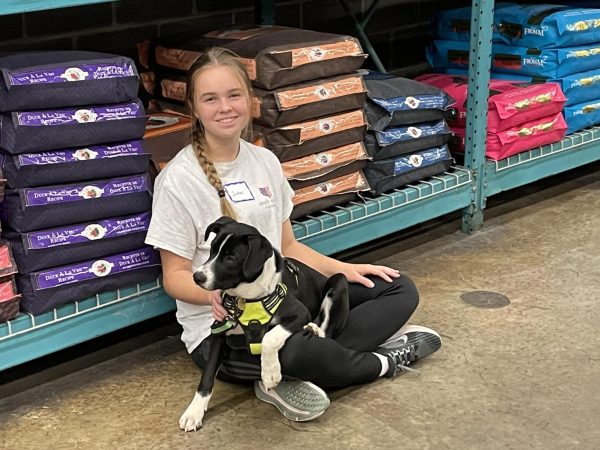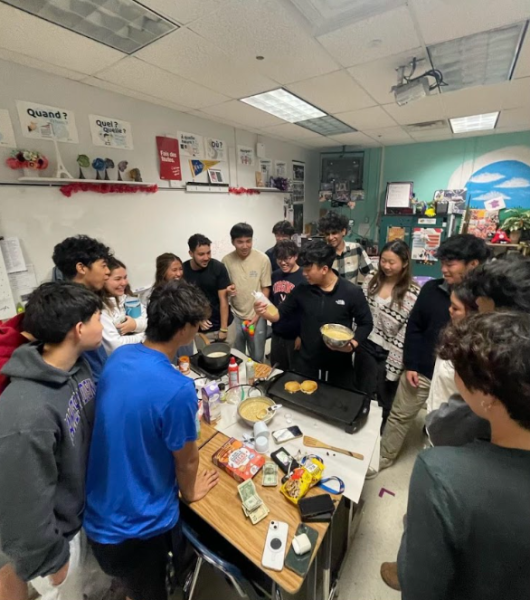Big families make a big impact in the Chantilly community
November 17, 2017
When some students think of family, they usually think of hardworking parents, two to three children, a pet and possibly a white picket fence. Although big families were prevalent in years past, according to Gallup News, almost half of Americans say that two children is the ideal amount for a family. Yet, there are several large families in the Chantilly community, showing that more can indeed be merrier.
“I am the middle child,” senior Abraham Bonane said. “Four older sisters, one younger sister and three younger brothers.”
Many parents with lots of children also enjoy having many grandchildren.
“Having a big family is fun,” health teacher Ralph Chapman, father of 14, said. “It’s the best because we have lots of grandkids, all 29 of them.”
While sharing resources such as bedrooms, bathrooms and electronics can make for a chaotic household, it does not stop children of large families from keeping a positive attitude. In fact, the constant interaction and companionship may cause them to be more fulfilled.
Compromise plays an important part in keeping things peaceful in the household.
“Especially growing up, dealing with people, you have to learn to compromise on a lot of things. You have to learn to live in a space with a lot of different people,” Bonane said.
Some believe that birth order affects personality and that being the oldest may make you more responsible and academically inclined, while being the youngest child could potentially make you more social.
“I believe being the youngest has contributed to me being social and outgoing because my siblings and I would always do things together, and that gave me the courage to go out and be less shy about making friends,” sophomore Renae Knisely, member of a family of 11, said.
Big families can sometimes be seen as a spectacle, but people who have large families learn much from growing up surrounded by relatives.
“We didn’t have big vacations,” Chapman said. “It became too expensive on a schoolteacher’s salary.”
Despite all the benefits that come with sizable families, some believe that it puts financial strain on the parents. However, negative stereotypes such as these do not prevent children of large families from creating fond memories with their siblings and parents; in fact, being part of a large family creates more opportunities to have memorable moments.
“I was never lonely; my siblings are like my best friends. When we were bored, we used to play King of the Hill. We went through three Xboxes, the last of which my mother broke by shoving a butter knife in while trying to fix it,” Knisely said.
For teenagers growing up in big families, childhood can be a wild ride. Nonetheless, being a part of a large family is a rewarding experience.
“They all have their own distinct personalities, and they’re all pretty good people; they’ve all got their feet on the ground. We have a lot of fun; there was never a boring moment in the household,” Chapman said. “There were a lot of good times and some rough times, but it all balances out in the long run.”












